Benefits of Implant-Supported Dentures
March 29, 2023
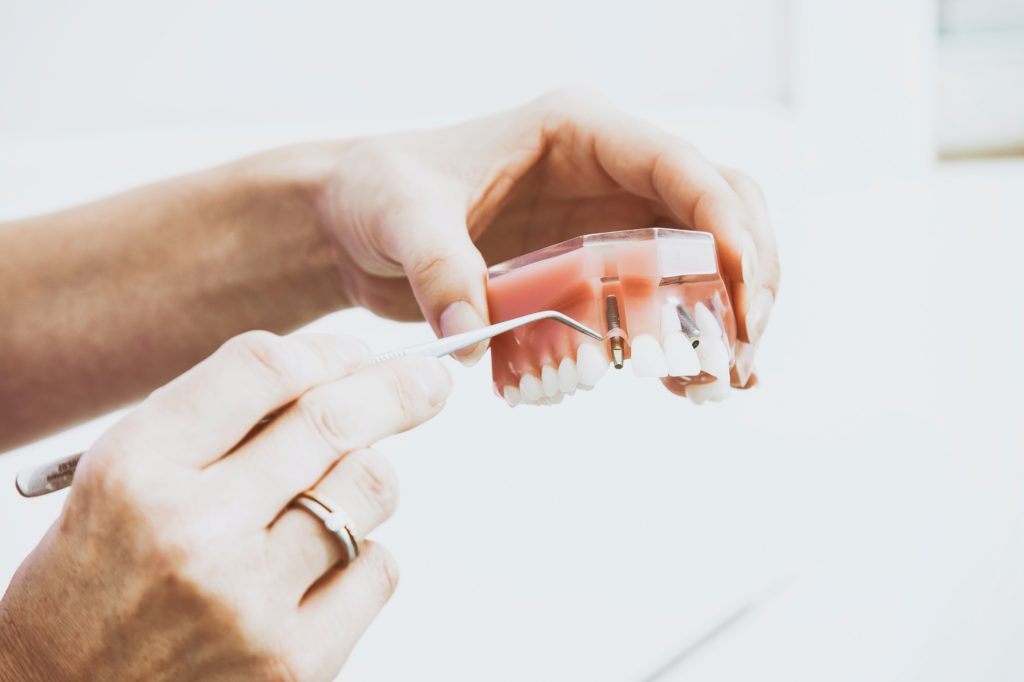
When adults lose teeth as they age, they often jump to the conclusion that they will need traditional prosthetic dentures, which sit on the gums of your mouth. Thankfully, technology has progressed over the years and we have alternatives for bringing back the appearance of your natural smile, with dental bridges that anchor to existing structures in your mouth. One of our favored alternatives is Permanent Implant-Supported Dentures. Not only do these preserve the aesthetic of the mouth, but they also protect the overall structure of the mouth by preventing the surrounding teeth from moving out of their usual position, further preventing discomfort as these structural changes take place.
(more…)What is Implant Reconstruction?
February 25, 2023
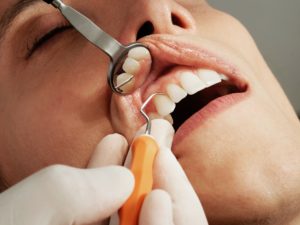
One of the most common dental procedures we perform in the clinic! If you’ve lost a tooth from decay, age, or even injury, dental implant reconstruction is where we use implants to restore the lost tooth. Not only will this resemble your teeth and restore your smile, but it will ensure you can chew properly again!
(more…)The Best Way to Clean Your Dental Implants
January 27, 2023
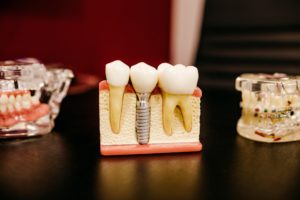
Looking to replace missing teeth? Dental implants are a healthy and hugely popular option to get your teeth looking the best they have in years, but in order to keep them looking like this it requires a little bit of attention. Like with anything, consistency is key – so first and foremost we need to be focussing on our cleaning routine.
(more…)What You Should Know About Dental Implants
March 30, 2021
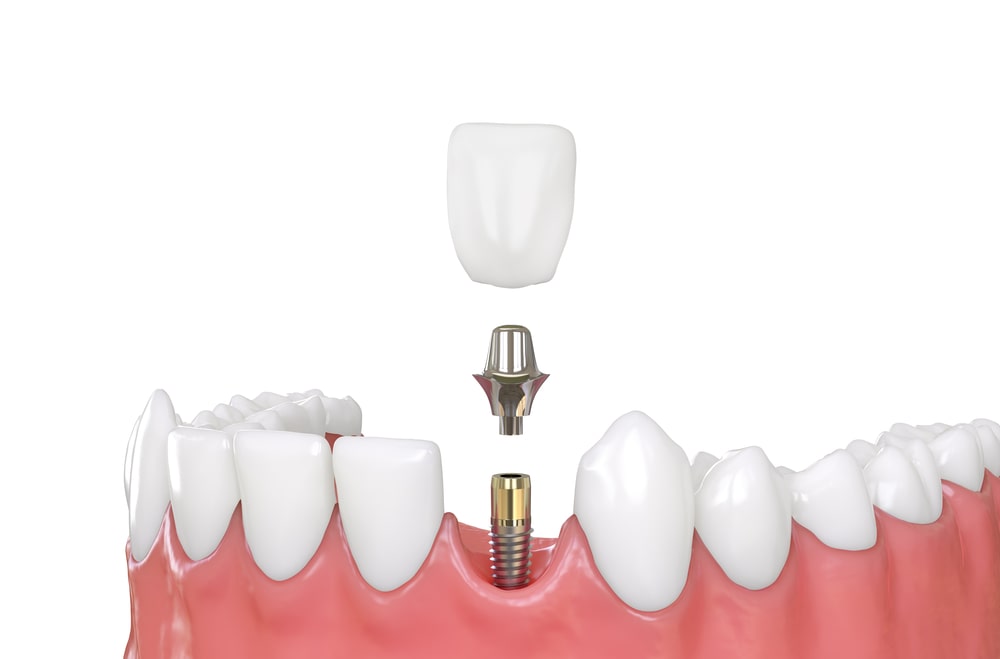
Dental implant procedures are common oral surgical services that are used to correct or replace gaps caused by missing teeth among patients. While each case may present its own unique approach, in general, dental implants involve embedding a titanium screw into the jawbone in order to securely attach an implanted false tooth. The procedure can work wonders for a more permanent solution to correcting missing teeth, but it understandably brings with it a barrage of questions from patients. If you are considering dental implants, here are a few things to know first.
(more…)Dental Implants: A Look at the Benefits and Risks
December 29, 2020

Whether you’re dealing with severe tooth decay, periodontal disease, or tooth loss due to injury or trauma, you’ve likely considered dental implants. For thousands of local residents, finding a solution to missing teeth can bring many questions and concerns surrounding the plethora of options available.
For decades, the only choices for tooth replacements came by way of dentures or bridges which didn’t allow for truly secure or permanent teeth flexibility. Dental implants have closed the gap on this issue – literally. So just what are dental implants and how do you know if you’re a good candidate for them?
What Are Dental Implants and Are They Right for Me?
To decide if implants are a good fit for you, it’s important to first understand what they are and how they function. Essentially, dental implants are a permanent artificial replacement option for the roots of your teeth, allowing for a secure foundation for new artificial teeth.
Since dental implants are affixed directly into the jawline, they create a firm base for dental professionals to attach perfectly matched artificial teeth. This base is actually fused to your bone structure, ensuring your new teeth are as securely fixed as your natural teeth.
The Pros and Cons of Tooth Replacements
If you’re considering dental implants to correct a missing tooth issue, weighing the pros and cons of the procedure can help you with your decision. Here are some of the most common benefits our patients experience after having dental implants added:
- Longevity. Since they’re fused with your jawbone, dental implants offer the most secure and permanent solution for replacement teeth. They are extremely durable and last substantially longer than other options like dentures or bridges.
- Comfort and Convenience. With their secure foundation, implants allow for a much more comfortable fit than options that are removeable. They also make eating much easier without the fear of teeth slipping.
- Speech Improvements. With missing teeth or replacements such as dentures that can move, our speech can often suffer. This can lead to slurring words or even a stutter or other impediment. Having a solid, full tooth structure allows for improved speech.
- Overall Oral Health and Appearance Improvements. Since implants do not require your oral professional to alter the nearby teeth in any way like other procedures do, they cause less damage and promote the overall health of your teeth in general. In addition, they are carefully matched to your existing teeth, allowing for an improved physical appearance as well.
Finding a Professional for Dental Implants Lancaster
If you’re looking for dental implants Lancaster, our professional and friendly staff is here to help guide you through the process. We have helped thousands of patients improve their smiles and quality of life through dental implants and are happy to do the same for you!
To discuss your tooth replacement options and determine if dental implants are right for you, give us a call or visit us today!
Preparing for Dental Implants and Other Major Oral Procedures
August 11, 2020
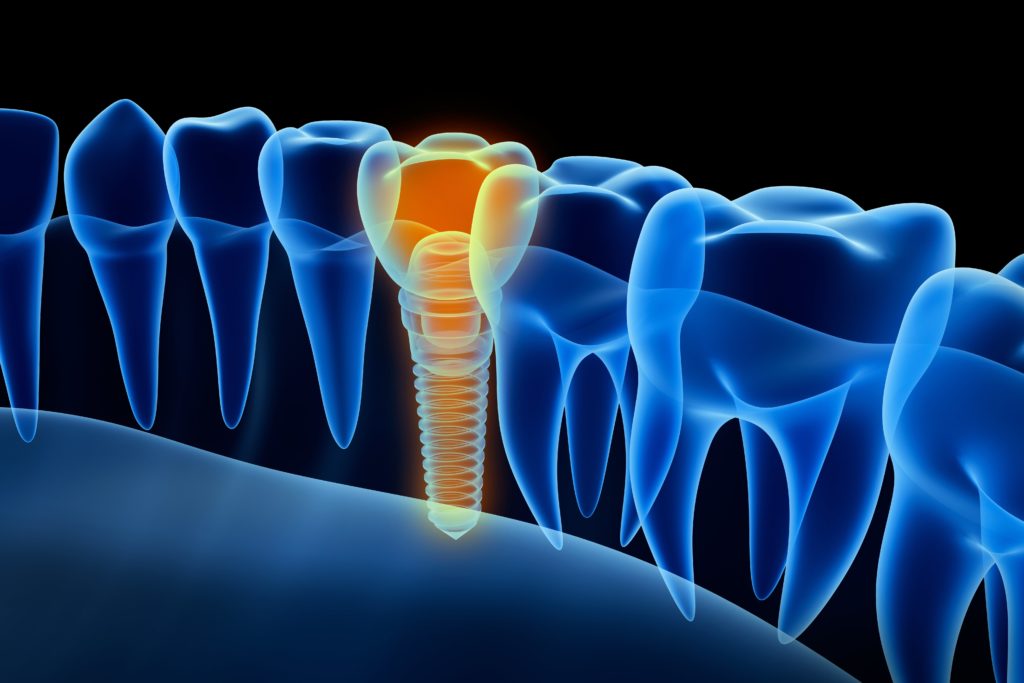
When it comes to dental implants – or any major oral procedures for that matter – the key to a positive experience lies primarily with the preparation. Knowing not just what to expect, but how you should be preparing for your upcoming procedure, will help ensure you don’t hit any roadblocks or recovery obstacles down the road. So, how do you go about making sure you’re properly prepared?
Best Way to Prepare for Dental Implants
The best way to prepare for an upcoming dental procedure involves doing your homework and making some concessions for a successful surgery and recovery process. Exactly what this may entail will likely be different for each patient, so it’s imperative that you know specifically what you need to do in order to have the best possible individual experience. Here are some of the most important steps to take prior to your dental implants Lancaster procedure:
Meet with Your Dental Professional and Do Your Homework
Your first step, if you haven’t done so already, should be to schedule an appointment with your dental professional. When you’re considering a dental implant procedure, there are many variables to consider and you should be sure to have a detailed examination as well as a thorough Q & A session with your Lancaster dentist. Your exam will include detailed information explaining the procedure as well as go through your medical history, testing and results, and outline a comprehensive preparation plan.
Plan for Your Procedure
After discussing the details of your surgery, test results, and medical history with your oral professional, you will begin to prepare for your procedure. For some, this will likely require a round of antibiotics in order to ensure you are safeguarded from infections in much the same as any other form of surgery.
You will also need to ensure you’re prepared financially for your specific procedure. Be sure to contact your insurance prior to scheduling any surgeries or major procedures in order to be informed of your level of personal financial responsibility.
Prepare Yourself Physically for Your Upcoming Procedure
When you get closer to the date of your surgery, there will be physical preparations you need to take as well. These can include fasting for a specified time beforehand (be certain you are aware of your pre-op requirements as directed by your oral professional) but can also include simply planning for your own comfort. Knowing the length of the procedure, it is usually recommended to arrive in clothing that is non-restrictive and loose in order to keep you as comfortable as possible during and after the procedure.
Plan for Your Recovery
In order to have the smoothest recovery process possible, you’ll want to plan ahead as much as you can. This involves scheduling time away from work or activities to allow yourself time to heal. It also means planning for someone to drive you home from your procedure and help with any necessary tasks at home in those first couple of days of recovery and beyond as needed. You’ll also want to stock up on soft foods and plan to keep your schedule light to truly rest and recover after you return home.
Most Common Restorative Dentistry Practices and How to Plan for Them
June 25, 2020

Restorative dentistry involves any dental procedures used to restore the structure and functionality of your teeth and can involve any number of different treatment options. To determine if you’re in need of restorative dentistry services, it’s important to first understand what these services may be.
What Is Restorative Dentistry?
To put it simply, restorative dentistry involves any dental process which focuses on repairing or restoring damaged oral structures. This can include procedures such as fillings, bridges, and implants among many other services. It’s important to note, however, that restorative dentistry does not include those procedures that are considered cosmetic such as veneers or whitening services.
Most Common Restorative Dentistry Practices
While each case is different, there are a few restorative dentistry procedures that are among the most common services provided to our patients. Knowing whether your prospective procedure falls under restorative or cosmetic can help save you thousands in terms of what’s billed as an elective practice versus restorative. Here is a look at some of the most common restorative dentist Lancaster services treated by our professionals:
- Fillings. Whether they are amalgam (metal) or composite (white), fillings are the most common restorative dentistry we see. These are used to structurally repair and stabilize a tooth that has been deteriorated from cavities and decay.
- Crowns. If a tooth has suffered significant decay and is irreparable via fillings, it may be time for dental crowns (or caps as they are sometimes referred). These restorative processes involve constructing a “cap” that covers the entire tooth down to the gumline in order to protect it from further damage.
- Bridges. Similar to crowns, bridges are used to cover an area that has suffered a tooth extraction. It involves several crowns that are merged together and then bonded to the nearest healthy teeth on either side of the gap in order to “bridge” the missing tooth with a porcelain replacement.
- Bonding. In the case of chipped or broken teeth, bonding is usually the restorative practice utilized for repairs. Bonding is the process of recreating the missing portion of enamel by forming and bonding composite materials to the remaining tooth.
- Implants. When damage is significant, dental implants may be a viable decision. This is the process of replacing existing tooth structures with implanted artificial teeth. These are attached by a metal post that is essentially bonded to your jawbone via a screw-like metal “root.”
How to Prepare for Major Dental Work
Restorative dentistry can provide much needed relief for a variety of oral ailments, but it’s important to be fully informed prior to scheduling any such procedure. Be sure to thoroughly discuss your options with your Lancaster dentist in order to know what to expect and to make the right choice for your situation. You’ll also want to verify any potential procedures are covered by your insurance plans. This will help you avoid any surprise charges down the road from procedures that were deemed elective rather than restorative. Planning for your dentistry services in advance by doing your research and discussing things with your dentist is the best way to keep the pain away – both physically and financially.



